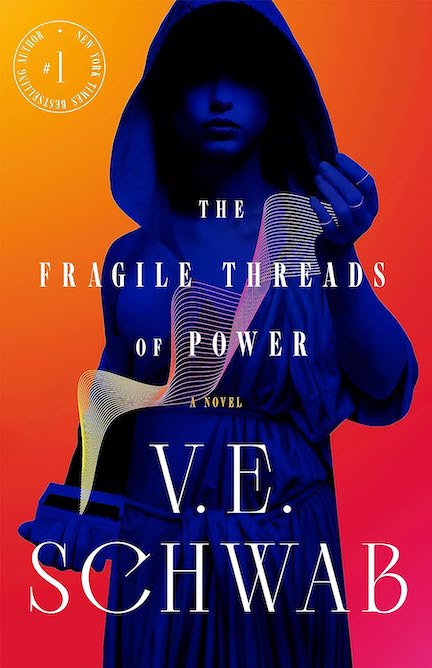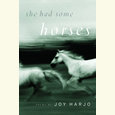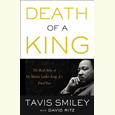Making the Ancient World Fresh and Relevant
Percy Jackson is back as Rick Riordan releases another long-awaited installment of his Heroes of Olympus series
When fans last saw Percy Jackson, son of Poseidon, and his girlfriend, Annabeth, daughter of Athena, they were falling into a pit leading to the Underworld, where unimaginable horrors undoubtedly awaited them. Meanwhile their friends were scrambling to meet them on the mortal side at the fabled Doors of Death. They are all on a quest to stop the Earth goddess Gaea from rising and destroying the planet. In other words, it’s just another day in the lives of these young demigods.
It’s no walk in the park being a demigod—someone with one mortal parent and one god or goddess. Most immortal parents are mysterious and inaccessible, not to mention downright dangerous, even to their own children. And despite their superhuman abilities, Percy and his friends never know what is coming at them next, but more than likely it’s something nasty: vicious trolls, mad water nymphs, an enormous spider, or bloodthirsty giants, to name only a few previous difficulties. Whatever the next challenge, it’s certain that devoted readers of Rick Riordan’s Heroes of Olympus series will gladly follow these teen heroes to Hades and beyond.
Prior to his appearance at the Southern Festival of Books, Riordan recently answered questions from Chapter 16 by email.
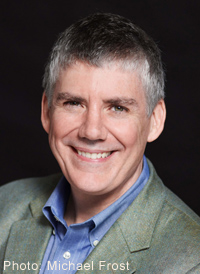 Chapter 16: You excel at creating complicated and recognizable young characters who have typical teen insecurities and doubts about themselves despite being demigods. In fact, they are often able to turn their supposed weaknesses into the strengths that save them. Was there anything in particular about your own youth or your children’s—or about your years of teaching—that prepared you to write such well-rounded characters?
Chapter 16: You excel at creating complicated and recognizable young characters who have typical teen insecurities and doubts about themselves despite being demigods. In fact, they are often able to turn their supposed weaknesses into the strengths that save them. Was there anything in particular about your own youth or your children’s—or about your years of teaching—that prepared you to write such well-rounded characters?
Riordan: I try to imagine my characters as students in my own classroom. I taught for many years, so I guess it isn’t that difficult for me to craft young characters with both strengths and weaknesses. Whenever I write a story, I draw on my teaching experience and envision reading each book aloud to a bunch of middle-schoolers. That keeps me on my toes because young readers are a tough audience. They want humor. They want a strong story. But most of all they want characters who feel real, who are going through things that seem relevant to the reader—even if the book is a fantasy.
Chapter 16: Despite the proliferation of ancient gods and goddesses throughout your books, you also sprinkle ironic or whimsical nods to modern culture within their pages—imagining Amazon.com run by actual amazons, for example. Do younger readers appreciate this kind of humor, or do you include such references more for your own amusement and that of your many adult fans?
Riordan: Of course I try to entertain myself, but it’s really all about the kids. I think they find such things funny. At least that’s what they tell me! Kids are pretty savvy observers of modern culture. They see more than adults give them credit for. When I think about humor in my books, I always think about the Bugs Bunny cartoons I enjoyed as a kid. Those cartoons had some very sophisticated humor, with plenty of references to contemporary culture, and yet there was no worry about the material going over kids’ heads. The humor could be enjoyed on a number of different levels by different audiences. That’s sort of what I strive for.
Chapter 16: The Kane Chronicles series follows Carter Kane on a journey into the world of Egyptology, whereas Percy Jackson and the Olympians, as well as The Heroes of Olympus series, consider Greek and Roman mythology. Your next series will reportedly draw its characters and storylines from Norse mythology, a culture that is surely less familiar to American audiences. Has it been more of a challenge to create heroic adventures in that world?
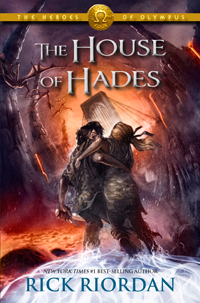 Riordan: Norse mythology, I think, is actually better known and less challenging to write about than Ancient Egypt. I don’t anticipate a problem with that. Even when I first began writing about Greek myths, adults would say, “Oh, is that going to work? Kids don’t know those stories very well, do they? They’re not taught in school as much anymore.” In fact, kids eat up mythology. Unlike adults, kids have no trouble keeping all the names of the gods and monsters straight. The challenge with the Norse myths will be to make a fresh approach that is different from, say, Thor, the Marvel superhero, or the Norse world as interpreted by J.R.R. Tolkien in The Lord of Rings. I’m looking forward to bringing the Norse myths into the modern world in my own way.
Riordan: Norse mythology, I think, is actually better known and less challenging to write about than Ancient Egypt. I don’t anticipate a problem with that. Even when I first began writing about Greek myths, adults would say, “Oh, is that going to work? Kids don’t know those stories very well, do they? They’re not taught in school as much anymore.” In fact, kids eat up mythology. Unlike adults, kids have no trouble keeping all the names of the gods and monsters straight. The challenge with the Norse myths will be to make a fresh approach that is different from, say, Thor, the Marvel superhero, or the Norse world as interpreted by J.R.R. Tolkien in The Lord of Rings. I’m looking forward to bringing the Norse myths into the modern world in my own way.
Chapter 16: In another touch of whimsy, a character in The Mark of Athena complains about the bound book, preferring the “elegant feel” of the traditional scroll and its “smell of sheepskin.” Despite any such reservations you may have yourself about changing technology, you recently released an e-book short, The Son of Sobek, in which Percy Jackson meets Carter Kane. It has spent weeks on the Middle Grade Best Sellers List at The New York Times. What is your take on the role of e-books in literary culture, especially the young-adult genre? Any plans to continue the teaming of Carter and Percy in further adventures?
Riordan: I am not precious about physical books. I enjoy reading electronically and read about ninety percent of books on an e-reader now. I like physical books, too, sure. Especially for young readers, I think that will be the most accessible option for years to come, but I am not one to bemoan the death of the printed book, any more than I miss my old typewriter from high school. As for further adventures of Carter and Percy, I really enjoyed mixing their worlds, and I do have plans for some further short adventures. The problem with doing a full book-length crossover is simply time. I have so many other deadlines to meet!
Chapter 16: You have more than 88,000 followers on Facebook and more than 176,000 on Twitter. You also have a popular blog, “Myth and Mystery,” in which you post photos of your home and family and update fans on your appearances and book release dates. Do you see this kind of engagement with social media as crucial for contemporary authors, or is it just something you personally enjoy?
Riordan: I do think it’s critical for authors to have an online presence. Authors have always had the burden of being their own marketing directors. With the online world, that’s even more crucial. If you don’t have a website, a social-media account, or some sort of online identity, you basically don’t exist, especially for young readers. Having said that, I keep up with social media because it’s fun for me, and it’s a controlled environment where I can interact with my fans when I have time—a tweet only takes a few seconds, which I can do when I take a writing break. It’s a way to stay in touch without getting overwhelmed, as would happen to me if I tried to respond personally to letters or emails. The volume of correspondence I get unfortunately makes that impossible.
Chapter 16: Percy Jackson’s Greek Gods is scheduled for publication in 2014. On your blog you describe it as “a full-length book that I hope is the most readable modern take on Greek mythology, and also the most complete version available for young readers.” What made you decide to take time out from fiction to produce this nonfiction retelling of the Greek myths? Can fans also expect such volumes for Roman and Norse mythology in the future?
Riordan: I’d always hoped to do a Greek myth collection because as a teacher I always had trouble finding a good one to use with my classes. The collections we normally use are a bit dated. They just don’t connect to kids in the middle grades very well. My hope is that Percy Jackson’s snarky narrative and modern sensibility will bring the myths a new freshness and relevance for kids today. I’d love to do a similar book for the Norse myths. We’ll have to see what happens!
Rick Riordan will discuss The House of Hades at the twenty-fifth annual Southern Festival of Books, held in Nashville on October 11-13, 2013.

